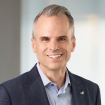
How we’re making a difference through our commitments to building trust
FY25 Trust journey update

Our path to building trust in PwC Canada
Our Trust Roadmap reflects our recognition that for us to help others build trust, we must be trusted ourselves. One of the key steps in the journey is to hold ourselves accountable by disclosing five-year targets and KPIs to measure our performance across our top trust drivers each year.
Our roadmap is an acknowledgement that the importance of trust continues to grow as societies around the world grapple with declining public confidence in key institutions. At PwC Canada, we aren’t immune to this, and we acknowledge that there can be situations where our stakeholders ask us to do better.
We’re committed to ensuring that we continue to earn our stakeholders’ trust every single day. If and when issues do arise where we don’t get it right, we take immediate ownership and corrective action.
We are pleased to reflect on the progress made over the past five years. Guided by a clear set of targets that expire this year, our efforts have catalyzed meaningful advances across the most material issues identified by our stakeholders. While we acknowledge areas where further improvement is needed, this reporting milestone underscores our dedication to transparency, accountability and continuous improvement. This update includes actions taken during our 2025 fiscal year, which covers the period from July 1, 2024, to June 30, 2025.
Given the rapidly evolving market dynamics, we will take the coming year to conduct a comprehensive review of the current reporting landscape and thoughtfully assess how best to advance our reporting framework. We will also continue to assess how our disclosures are connected globally and locally as part of our network of firms.
1. Our progress towards addressing our blind spots
Holding ourselves accountable while helping organizations align around reporting standards to drive better quality outcomes: As part of the development of PwC’s Global Centre for Nature Positive Business to support organizations in their climate and nature journeys, we continued to share nature-related data tools and case studies that are available on the Task Force on Nature-related Financial Disclosures (TNFD) website. As part of our Canadian firm’s reporting, we continued to report that our Vancouver office is next to a key biodiversity or protected area and are continuing to put a greater emphasis on understanding our physical impacts on the surrounding natural environment. For more information, read our PwC Network Sustainability Report.
We continued to actively participate in coalitions to advance environmental sustainability within the marketplace. These included the LEAF Coalition, a public-private effort to protect tropical forests; the World Economic Forum’s First Movers Coalition, which brings together companies using their purchasing power to create early markets for innovative clean technologies across eight hard-to-abate sectors; and the WEF’s Clean Skies for Tomorrow coalition, which seeks to help the world transition to sustainable aviation fuels.
PwC maintains a membership and participates actively in the ISSB Partnership Framework for capacity building, which aims to support implementation of global sustainability standards. Within Canada, we have participated in the Implementation Committee for the Canadian Sustainability Standards Board (CSSB) to develop the initial institutional structure by defining and codifying key governance and due process considerations.
We are proud take on client work and publish thought leadership that aligns with our values and our sustainability commitments, for example, administering British Columbia’s Clean Coast Clean Waters program here in Canada, which, since 2020, has removed 215 derelict vessels and cleaned up more than 2,100 tonnes of marine debris from more than 6,400 kilometers of shoreline, while creating or maintaining nearly 2,400 well-paying jobs. In addition, we published our 2025 Canadian Sustainability Reporting Insights for public companies to help benchmark progress across standards and found that 70% of companies do not disclose the potential financial impacts of their climate-related opportunities, reinforcing the importance of aligning sustainability governance, strategy, and risk management processes to metrics as reporting standards continue to evolve.
Enhanced our trade policy capabilities through the launch of the Tariffs and Trade Policy Resource Centre: This included the deployment of the proprietary Tariff Impact Assessment (TIA) tool. This tool allowed organizations to quantify their exact dollar exposure to potential tariffs by conducting comprehensive scenario analyses, revealing hidden risks and opportunities specific to their operations. The Resource Centre continues to support businesses in assessing and managing the effects of tariffs on supply chains, trade compliance, and tax strategies.
In addition, the platform facilitated the development of trade and customs mitigation plans by enabling the examination of key suppliers, contracts, and potential tariff exclusions. It also provided detailed analyses of supply chain data to inform sourcing, manufacturing, and inventory decisions. Tax strategy assessments were conducted as well, focusing on transfer pricing policies and transaction characterizations to address income tax impacts related to supply chain adjustments. Collectively, these efforts helped organizations better understand and respond to evolving tariff and trade challenges during the period.
Continued to take action on employee feedback to further embed trust within our firm’s culture: External market dynamics continued to drive overall reductions in trust of business leadership across all sectors. We weren’t immune to this trend.
Our People Trust Index decreased slightly to 71% from 72% towards our 85% target. Our people’s sentiments around being treated fairly also decreased (to 72% from 73%), as did feelings of being treated well (to 75% from 76%). Like many organizations, we reimagined our business model over the last year. This included new investments that were made to transform our delivery of services and resulted in a downward adjustment to our headcount in Canada. Our 85% target was initially set based on market conditions at that time and will be reevaluated going forward.
Similar to last year, feedback from our people continues to suggest that we can do more to be transparent about how business decisions are made and what actions are taken, sharing context about the reasons why more often, while being clear and consistent with how we communicate information across our business matrix. We’re learning that there can also be unintended consequences when we share too many details about programs or initiatives that can cause information overload, even when the spirit of transparency is at the heart of our efforts. We remain committed to finding the right balance.
To help respond to this feedback, we launched an updated People Value Proposition (PVP) globally and re-focused on a refreshed approach to coaching. This included a new feedback tool to support more timely and valuable insights to support our people’s development. We also introduced additional options for our Total Mental Health benefit to enable more access to physical and mental health services. We plan to continue to share more about what we’re learning and how we’re adapting to feedback.
Continued to take action on workforce representation to support greater diversity on our teams and launched our Indigenous Reconciliation Action Plan: After achieving gender parity on our partnership board last year, we have continued to maintain that result (at 50%) and on our Extended Leadership Team (maintaining 50%, down slightly from 56%). Our representation of visible minorities within the partnership increased slightly (to 24% from 22%), as well as across the firm (to 49%, up from 47%). But we didn’t move the needle as fast in regard to our Indigenous and disability populations across the firm and remain committed on focusing on these underrepresented groups.
Building on the efforts of our Indigenous Reconciliation Advisory Committee (IRAC), we were proud to launch PwC Canada’s Indigenous Reconciliation Action Plan, demonstrating our commitment to fostering respect, reciprocity, and trust through concrete actions across six key pillars. These include strengthening leadership and governance by integrating Indigenous perspectives; enhancing education and cultural awareness; actively recruiting and promoting Indigenous talent to ensure equitable career opportunities; creating a more inclusive workplace; advancing economic reconciliation through educational and economic initiatives; and supporting Indigenous community development. This comprehensive plan reflects PwC’s dedication to meaningful reconciliation and strong, lasting partnerships with Indigenous Peoples and communities, and builds on our existing commitment to Partnership Accreditation in Indigenous Relations (PAIR) program that was announced last year.

Top trust drivers to address blind spots:
- Engaging in courageous conversations in the moment
- Showing how decisions are made and actions are taken
- Treating stakeholders fairly and well (these are related yet different concepts)
- Fostering connection to PwC Canada through approachable leadership and a broader sense of community
2. Our progress on maintaining trust around our core competencies
Continued to strengthen audit quality: In addition, the firm is registered with the PCAOB and subject to PCAOB inspections with respect to work as auditors of SEC registrants and their affiliates. Part I, which is the public portion of the PCAOB inspection report, contains an overview of the inspection procedures and observations on the engagements inspected. Part 1.A includes a discussion of deficiencies identified by the PCAOB in its inspection of issuer audits. A full copy of our 2024 inspection report is available on the PCAOB website at www.pcaobus.org. While our results have improved, we are not satisfied with the results of our most recent PCAOB inspections. We have analyzed the root cause of the matters raised, have taken remedial actions and remain focused on continuous improvement and we remain confident in our continued ability to deliver strong audit quality. No PCAOB inspections took place in 2025. The firm continues to be registered with CPAB and PCAOB. For more information, read our Transparency Report, which includes additional information about our audit practice and related services.
Conducted testing to reinforce our commitment to independence: All PwC Canada partners and practice staff must complete annual training and a compliance confirmation, through which they confirm their compliance with relevant aspects of our independence policy. Professional staff are subject to personal independence compliance testing on a targeted or random basis. Findings of external non-compliance represented 0.4% of tests completed, a continued improvement from 0.9% as of our last fiscal year.
Strengthened the psychological safety underpinning our culture of speaking up: At PwC, we’re committed to conducting our business to high standards, which includes treating each other, our clients and the community in an ethical manner. It’s an important way we build trust. Our Speak-up Index is composed of responses to our People Trust Survey, which assesses employees’ knowledge of, and interaction with, our ethics protocols. It includes industry-standard elements for measuring awareness of channels for escalation as well as experiences and satisfaction when raising ethical matters. This year’s results were 78% (down slightly from 80% the previous year). We continued to strive to get better each year through increased communication, training and continuous improvements.
This year, we continued to focus on increasing our people’s awareness of and familiarity with escalation channels and implemented feedback from our monthly trust survey through transparency about how an investigation works, response timelines and ongoing stakeholder communications. We believe that as a result of this effort, our satisfaction scores within the survey continued to increase, specifically related to situations where issues were raised within our coaching structure and escalated immediately to our centralized ethics team. This remains an area for continuous improvement and we are increasing our firmwide communications and training over the next year.
Reinforced our commitment to quality and compliance with our network’s professional standards: Quality and compliance are at the heart of our purpose and a top priority for our stakeholders. Our measures related to engagement quality and compliance reflect our values and a culture of transparency and continuous improvement. There was a slight increase in hours this year. We continued our focus on pre-issuance reviews including testing and monitoring of our system of quality controls. This reflects the ongoing development of standards and market expectations both nationally and globally.
By dedicating expert resources to compliance and quality, we can identify potential risks and issues early, addressing them proactively rather than reactively. This prevents problems from escalating and ensures our clients receive the highest standard of service.
We’re committed to maintaining our strong track record beyond our 2025 fiscal year targets. PwC Canada is in compliance with our network’s code of conduct and upholds its professional standards and values through every interaction with our stakeholders each day.
Doubling down on investments in Artificial Intelligence (AI) and cyber security: As part of our previous announced investment of $200 million to expand our AI capabilities, PwC Canada was among the first Canadian organizations to implement generative AI tools and technology organization-wide, with the deployment of Copilot for Microsoft 365 for the entire organization. The firm-wide adoption of this innovative technology further strengthens the relationship with Microsoft and highlights a commitment to expand and scale AI offerings to guide our clients and communities in their digital transformation as well.
We also published our second Global AI Jobs Barometer report and results showed that AI is making workers more valuable, productive, and able to command higher wage premiums, with job numbers rising even in roles considered most automatable. The report is based on analysis of close to a billion job ads from six continents and found that since GenAI’s proliferation in 2022, productivity growth has nearly quadrupled in industries most exposed to AI (e.g. financial services, software publishing), rising from 7% from 2018-2022 to 27% between 2018-2024. In contrast, the rate of productivity growth in industries least exposed to AI (e.g. mining, hospitality) declined from 10% to 9% over the same period.
PwC Canada launched the country’s first assurance solution designed specifically for artificial intelligence (AI) systems, addressing the growing demand for transparency and trust in AI technologies. This solution helps organizations evaluate the reliability, fairness, and compliance of their AI models by applying rigorous assurance methodologies tailored to AI’s unique risks and complexities. By providing independent validation, PwC Canada’s offering supports businesses in building stakeholder confidence and meeting emerging regulatory requirements related to AI deployment.
Combined, these investments underpin findings from our 2025 Global Digital Trust Insights survey that found that four-fifths (77%) of organizations expect their cyber budget to increase over the coming year.

Top drivers of maintaining trust around our core competencies:
- Adapting our services to evolving ethical business practices to earn the right to lead our industry
- Delivering the quality products and services our stakeholders expect
- Clearly articulating what we stand for, acting on our values and we delivering on our promises
3. Our progress on the table stakes disclosures our stakeholders care about most
Pay equality and transparency: In 2022, we undertook a comprehensive, two-year analysis of our pay equity landscape and have set and publicly disclosed aspirational targets for equity in compensation for women and visible minorities and we are proud of our achievement. Over the past year, we have continued to refine our compensation programs to enhance consistency across competencies and grade levels. We also continued to identify and monitor factors that could contribute to wage gaps to ensure we’re advancing and realizing fair and equitable pay for all.
As part of this process, we worked with our data analytics group to re-review and continue to optimize our statistical model to re-confirm that known variables such as location, experience, education and performance are accurately reflected. This helps us continue to demonstrate how different factors contribute to pay and how those contributions may differ across levels and competencies. We acknowledge that this work will continue to evolve and that we’ll always have more to do to deepen our understanding and implement plans across lines of service and levels within our business.
Reinforced our near-term net zero targets while investing in new AI driven sustainability data intelligence platforms: PwC has made a worldwide commitment to achieve net zero greenhouse gas emissions by 2050 with near-term 2030 goals and long-term science-based targets validated by the Science Based Targets Initiative. The PwC network will also work with our clients to support their efforts, contribute to public policy developments in support of net-zero goals and decarbonize our own operations and supply chain. To reduce impacts today, PwC will offset emissions through high-quality carbon credits, transitioning to 100% carbon removal credits by fiscal year 2030.
As part of our efforts to ensure personal and business accountability within Canada, we continued to implement new internal controls when booking travel to help us mitigate emission increases from flights. We continued to take actions to embed carbon budgets into each of our lines of service but slightly exceeded our overall carbon cap (11,499 tonnes CO2e vs. our 50% cap of 11,000 tonnes CO2e), primarily attributed to the proportionate increase in business travel aligned to the growth of our business and our work with clients in the marketplace.
As part of our focus on continuous improvement, we implemented a new AI driven data intelligence platform to support real-time analytics for carbon modelling and to help improve our predictive analytics. This investment, combined with additional internal controls, has helped us to strengthen our data quality and overall emissions insights to proactively manage new and existing business initiatives.
Further exceeded our goal to digitally upskill at least 2 million Canadians: Our investments of time and resources to empower our people to contribute their skills and capabilities through our social impact programs helped us exceed our target a year ahead of schedule, and has now reached over 2.3 million cumulative beneficiaries through our digital upskilling programs that we continued to support during FY25.
In addition to our pro bono investments, our people contributed more than 42,000 volunteer hours last year to support experiences like technology upskilling workshops for not-for-profits and social and micro enterprises; coaching new entrants to the job market; and mentoring individuals to help them develop skills in science, technology, engineering and math.
Our team also focused on strengthening the capacity and resilience of Canada’s not-for-profit sector by conducting an economic analysis on the Impact of the US tariffs on Canada’s not-for-profit (NFP) sector. Our publication provided practical information and insights for policy makers, donors, investors and NFP boards and management teams to help address the current gaps while mitigating the potential impact of future needs. Canada's not-for-profit sector is currently navigating substantial financial hurdles, with recent tariff measures threatening GDP losses of $126 million and a $100 million drop in donations this year.
Continued to deepen our economic impact: As part of our focus on paying our fair share of tax and helping build a stronger and more resilient economy for all, we work with our Canadian economics and policy practice each year to quantify our direct, indirect and induced economic impacts. This year, our contributions to Canada’s gross domestic product, labour income and government tax revenue continued to increase reflecting ongoing investments that were made to transform our services and keep pace with the competitive demands in the market.

Key disclosures to address stakeholder expectations:
- ESG reporting topics
- Fair pay for fair work (and with pay equity)
- Sustainable and profitable growth in the business
Contact us

National Managing Partner, Clients & Markets, PwC Canada
Tel: +1 514 205 5199

© 2018 - 2026 PwC. All rights reserved. PwC refers to the PwC network and/or one or more of its member firms, each of which is a separate legal entity. Please see www.pwc.com/structure for further details.












